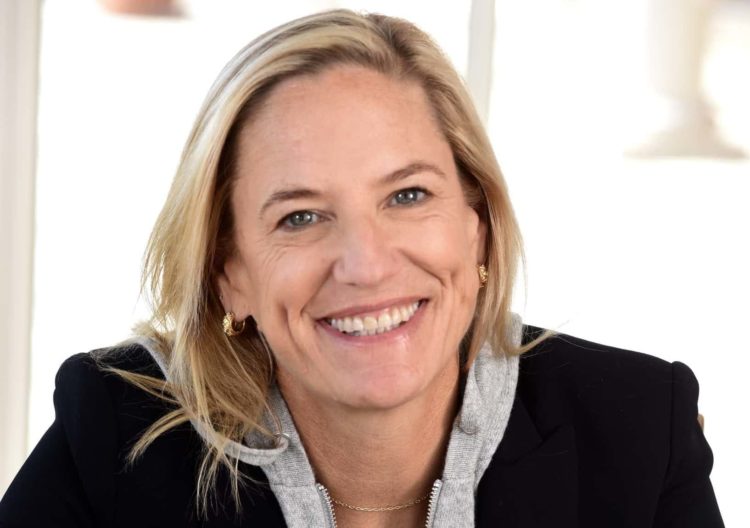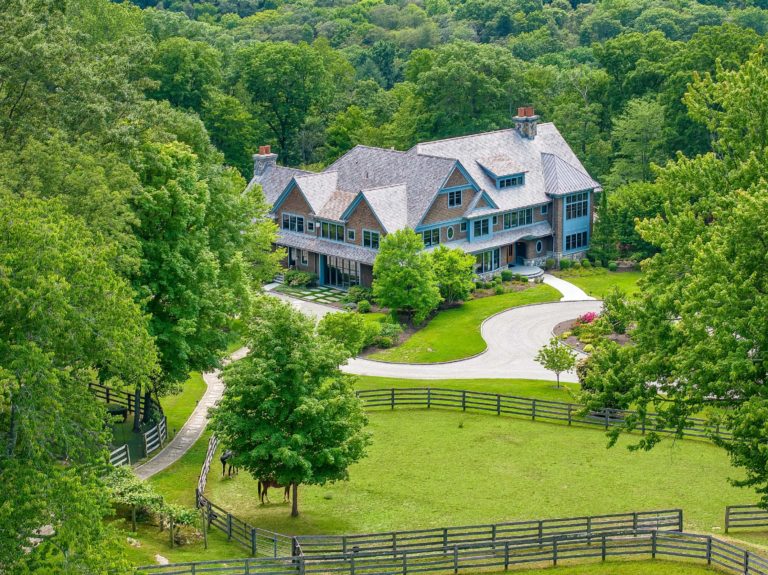By Maria Scaros
In the past month, I have received more inquiries from frantic caregivers regarding their loved ones than I have in any other given month in the past six years of my tenure at The Greens at Greenwich. This pandemic has affected us all in extraordinary ways. Those persons with memory impairment are no exception. Like all of us, they require socialization; perhaps more than most. They require engagement and stimulation that is not conducive to being quarantined.
Many with Alzheimer’s and other related dementias may have slipped further along in their disease or their families have realized they are not equipped to care for them properly. The journey to find just the right fit for a very special person, can be daunting. At this time, you would need to ask additional questions regarding how each facility has managed during this crisis.
When I mentioned I was writing a column about helping families navigate the search for the right assisted living for their loved one, one of my family members offered a tip. “Get a map and draw a circle around the area you want to explore, and don’t go outside the lines.”
For this family, proximity to mom was very important. They wanted to drop in before and after work. Thankfully, The Greens at Greenwich was the perfect choice. We landed smack in the middle of her circle. We also met other important criteria.
And what are the criteria? What should families be looking for? What should they be looking at, and what are the questions they should be asking? Most importantly, how do they start? You can begin as Catherine did, by drawing a circle on a map and googling the assisted living facilities that lie within. There are so many these days, you will more than likely be able to make a solid list.
One of the first questions should be, “Why now?” What is it that has brought you to the place where assisted living is your next step? Answering that question can help guide you to the level of care you are looking for. A traditional assisted living and a memory care assisted living will look and feel a bit different. The questions to ask will also be different.
Before you walk in any door, do a bit of homework.
1. Make a list of those facilities you wish to visit….no more than three to start.
2. Google each assisted living you find within your area of choice and explore their website. Besides the “look” of the site and the facility, be sure to look at the levels of care that are provided.
Remember: When reading reviews remind yourself that people write more often when they are upset than when they are happy. Reviews do not show the whole picture. See the facility for yourself and do not be afraid to inquire about the review.
3. At this time, ask what procedures the facility has in place for
COVID:
a) What are the staff’s procedures in caring for residents currently?
b) Do staff work in multiple places?
c) What are their disinfecting procedures?
d) Have they had many cases of COVID? Any deaths? How did they manage to protect unaffected residents? How did they manage to care for those affected?
4. Ask about the longevity of the staff and how often they are provided with in service education.
5. Ask about the ratio of resident to staff. It should vary from traditional assisted living to memory care.
6. Ask if it is possible to speak with a family member of a resident residing at the facility.
7. If you find you are still overwhelmed, do not fret. There are people who can help, and their services are free of charge. You DO NOT HAVE TO DO THIS ALONE. Call the experts.
Be sure to use a local senior advisor as they have visited the facilities you are exploring and can help you find the best fit. They will offer you personal face to face service and help you navigate the system. Some of the best in lower Fairfield county include:
a) OASIS Senior Advisors – Susan and Paul Doyle; 475-619-4123
b) Care Patrol – Richard Russo; 203-244-9562 c) Assisted Living Locators – Mimi Santry; 203-651-6866.
Most of the time, you will be meeting with a sales representative when you tour. Ask to meet with the executive director or the supervising nurse. If you are utilizing the help of a senior advisor, request they come along on the tour and assist in asking the questions you might miss.
Trust your gut feeling. Does the facility appear bright, warm, inviting? Will your loved one be able to navigate the space? Is the staff friendly? Do they look happy? Are the residents engaged? Ask about the food and ask to see a menu. Ask about the social, cognitive, educational, and spiritual activities. Can you see your loved one being happy in the environment? Be honest. It is about them, not you.
Trust your gut. While speaking to the facility representative, do you feel comfortable? Are they truly sensitive to your loved ones’ needs and your questions? How available will staff be to families. Do you feel rushed?
Trust your gut. Use all your senses. Are there unpleasant scents, sights, or noises? Observe the residents who live there. Are they like your loved one in age, and abilities?
If you are searching for a Memory Care Assisted Living, first, do as much as you can to educate yourself in the diseases of dementia. Some facilities profess they are experts and offer interventions/activities and programming for those with dementia. Ask them what these programs are and how they are different. Ask who facilitates the programs, their expertise and how they change as the resident changes. Let them know what your loved one enjoys and what would pique their interest. Ask if they can accommodate them with special programming. Ask how often residents go outdoors and if they go on trips. Where do they go? Ask how often their staff is provided with in-service education on dementia care.
Often, assisted living facilities do not provide an on-site RN 24/7. Ask about that. There are Nursing Care Aides 24/7. Remember; assisted living facilities are not medical facilities. Some have a license for “higher level of care”. Ask them about that. If they do not provide a higher level of care, be sure to ask what the criteria is for a resident to remain in the facility. Many residents remain in assisted living for their entire life, while others need to transfer to a nursing home (skilled facility).
Assisted Living is not an alternative to a Nursing Home. What does your loved one need? If they are medically compromised and require medical oversight; if they have chronic medical issues that require a nurse or doctor to monitor; if they are wheelchair bound and are unable to offer assistance to transfer in and out of bed, they may not be appropriate for assisted living. The criteria for assisted living are that one needs to be “chronic and stable.” If they have a chronic issue that is managed and stable, they most likely are appropriate for assisted living. The above-mentioned issues do not apply.
Each assisted living, as well as skilled nursing facilities, has their own criteria for admission, so be sure to ask about that. Some assisted living facilities which claim to provide a “high level of care” will accept someone who requires increased medical oversight. Some skilled nursing facilities will not accept someone who requires extensive medical oversight. Just let them know what you need. Be honest. It only hurts your loved one if they are not placed in the appropriate facility because you did not disclose their true needs.
Assisted Living is for-profit and therefore is private pay. Medicaid does not pay for assisted living. The costs range depending on the resident’s needs. As more help is required with medication management and activities of daily living (dressing, bathing, and eating), costs increase. Be careful. The initial cost may seem low, but there are add-ons.
When looking at price, ask “Is this all-inclusive care?” In Memory Care facilities, it may be the case, but not always. All-inclusive care means, as your loved one requires more help, your cost does NOT increase. This is rare. If you are working with a Senior Advisor for a Memory Care facility, ask them to recommend those with all-inclusive care, especially if you do not have long term care insurance or are concerned about costs.
The search for the right next home for your loved one is a daunting task. It can be overwhelming and bring up practical and impractical concerns along with emotions that will surprise you. You are not expected to be an expert. For most of us, this road is not on our radar. Do not be afraid to ask questions of the first person you get on the phone. Once again, trust your gut. Were they patient and empathetic? If so, make a date even if it is to collect information. You are entitled and your loved one is as well. Remember. Take a breath. Take the first step. Ask for help.
Maria Scaros is the Executive Director of The Greens at Greenwich, an intimate assisted living home for people diagnosed with some form of memory impairment.




